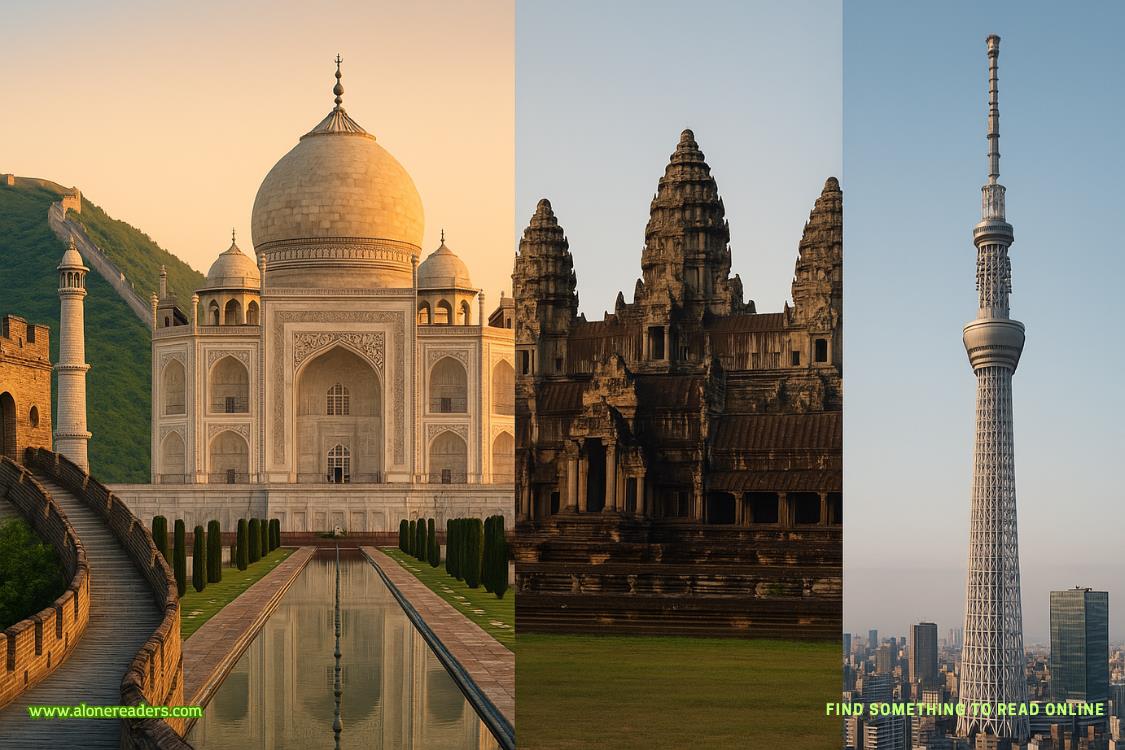Page 324 of Primal Bonds
But Tyrus’s death had left Langdon with a problem. He had no heir of his direct bloodline, and to the fae, blood was everything.
Blood, and tradition.
Picking up the slim silver knife, he cut a peach into six perfect slices and ate them before calling his butler to clear the table.
He stood before a window, hands clasped behind his back. Outside, his clan was emerging for the evening from their lairs. They glided among the winter-bare trees like elongated shadows, their tall bodies clad in black, their eyes dark holes in pale faces. The priests and priestesses wore shimmering silver—a dress, a shirt. A few of the more fashion-forward had added a splash of crimson—a scarf, high heels, a pair of gloves.
The New Moon Court was in a lush old-growth forest in Tidewater Virginia, spread across a peninsula that jutted into the mouth of the Potomac River. Each family or couple had their own home, built of granite or veined marble and set partly underground. The few feet that showed above ground were narrow structures with fanciful carvings at the apex—moons and stars, vining flowers, snarling wolves, bats with wings spread wide. English ivy ran rampant, crawling across the ground, over the roofs and up the towering trees.
To a human, it looked uncomfortably like a cemetery with above-ground tombs. To Langdon, it was home.
Tradition, he mused. His people had lived like this for thousands of years.
“Change is coming. The old traditions will be no more.”
At the last full moon ritual, the Goddess had spoken through Fleur. The priestess had stared straight at Langdon as she channeled the prophecy, making it clear to whom the message was directed.
Langdon had inclined his head.
Later, when Quade, the captain of his guards, had asked what the prophecy meant, he’d replied, truthfully enough, “We must see what the Goddess has in store.”
He glanced up at the immense oaks and tulip poplars that guarded the compound, their muscular branches stark against the dusky sky. The New Moon fae had established their court in this backwater country centuries ago, carving out a mile-square territory in the forest. It was dark, isolated, and yet easily accessible to the Chesapeake Bay and from there, the Atlantic Ocean. The indigenous peoples had been wise enough to give them a wide berth, and vice versa.
Langdon could still recall the arrival of the first European humans. His grandfather had been prince then, with Langdon’s father the designated heir. The old prince had enforced their traditions with an iron hand. He’d arranged Langdon’s mating with a high-born French fae, a beautiful, submissive woman. Langdon had been happy enough with her.
But she’d presented him with two sons and then died of a sudden, mysterious illness. Langdon had suspected poison, but he had no proof. The fae had ways of making poisons that left no trace.
Langdon had still been a young man—a hundred-and-ten turns of the sun. Youthful enough to chafe at the restrictions put on him by his powerful family. He’d buried his French mate and then fought with his grandfather over some ridiculous thing.
Looking back, he’d been grieving, but he’d only known he was furious with both his grandfather and his father, who’d taken the old prince’s side. So he’d left his sons with his parents and spent the next few decades traveling up and down the Americas disguised as a human folk healer. If he could heal the patient, he did—and if not, he fed on the family’s misery.
It was in New Orleans that he’d encountered a dark-haired, golden-skinned human. Marie-Josana, a Creole singer who performed in the city’s opera houses and theaters. He’d fallen hard. Within days, he’d bought a house in the Garden District and settled down with his beautiful Josana.
He hadn’t mate-claimed her. The heir to the night fae throne couldn’t have a human mate. But he’d loved Josana with all the passion in his dark heart.
With her, he’d been the needy one.
An uncomfortable sensation, one he’d taken care never to repeat.
In the end, he and Josana must have mated on some basic, primal level, because he’d gotten her with child. Langdon had named the boy Quicksilver, since he had the Gift of wayfaring. Silver, for short.
Then Langdon’s father had died suddenly, and he’d been ordered home by the old prince to take his place as the heir. His grandfather knew about Josana and Silver, of course. Very little escaped the old man.
But he’d made it clear that no one else could know about Langdon’s half-blood son.
To this day, very few people knew about Langdon’s third son, and even fewer knew Silver had had a daughter with an earth fada. Langdon had kept Merry hidden. To the pureblood fae, she was a mongrel, an embarrassment. His grandfather had sneered at Langdon for letting his seed be diluted.
But Langdon had loved his youngest son, even if he was a half-blood. Silver had been educated at the best schools, and Langdon had set up a trust that made his son a rich man in the human world.
He scowled into the rapidly falling night.
Ironic, that of his three sons, the half-blood Silver had been the best. The oldest, Dorian, had been weak, and Tyrus a ruthless, power-hungry S.O.B.
Langdon had cursed the tradition that didn’t allow him to claim a half-blood as his heir. And then it was too late. Silver was dead.
But Silver’s mixed-blood daughter lived.
The table had been cleared. His butler Olivier waited until his assistant left with the dishes, and then appeared at his elbow in his usual perfectly pressed black pants, pristine white shirt and natty bow tie.
- Sold to the Silver Foxes by Laylah Snow
- My Brother's Best Friends by Natasha L. Black
- The Rancher's Addiction by Lila Fox
- The Biker's Hidden Obsession by Khloe Summers
- Mile High Coach by Mia Mara
- Off-Limits as Puck by Kate Olivia
- Love Off Course by K. Webster
- Desert Sky by Jax Hart
- Their Darkest Needs by Amaya Jax
- Love & Vendettas by Cassie Verano
- Iron Bride by Molly Briar
- The Omega's Bloodline: Part One by Sierra Cassidy
- Forever In Willow Creek by Jade West
- Where the Blacktop Ends by Sofia Jade
- The Crown of Nyx by Audrey Moore
- Deep Feelings & Shallow Graves by Gwendoline Rose







